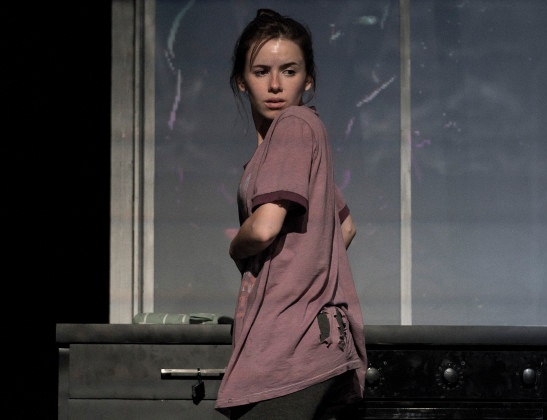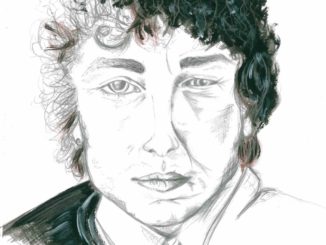
[dropcap]Asking for It[/dropcap] at the Abbey Theatre is a chilling depiction of ‘lad culture’ perpetrating rape culture as Louise O’Neil writes with a scalpel, making an incision into one of the darker sides of Irish society.
The play, which began in the Abbey Theatre this November is based on the second novel by Cork writer Louise O’Neil and has been adapted by Meadhbh McHugh and Annabelle Comyn for the stage.
In ‘Asking For It’ Emma O’Donovan, played by Lauren Coe, is a carefree schoolgirl in 5th year. Her life is filled with arguments with her mother, gruelling Irish grammar, gossiping with friends and obsessing over boys. She is the ‘queen bee’ of her school, so renowned for her beauty that there was even a billboard put up of her in her small Cork town after a GAA gala.
However, these parts of Emma are all abandoned after one despicable night. After a local football game Emma and all her friends attend a house party to celebrate. But, the next morning Emma is found by her parents, unconscious and barely clothed, on the front doorstep with absolutely no memory of how she got there. It is the events that lead up to this moment that will alter Emma’s entire life. Completely unbeknownst to her she had been gang raped by a group of local boys the night before, it is only when images are put up on social media that Emma realises the truly horrific things that happened her that night.
Coe encapsulates the character of Emma, she is both despicable and pitiful. A girl who is cruel to her friends, tries to kiss their boyfriends but she is also a victim, forced to have sex without any consent, so out of her mind that she could not even give consent. Asking For It does not encourage you to like Emma which makes the story all the more difficult to digest.
The chilling description of the images from that night emphasise how rape can take away a victim’s ownership of their own body. As Emma looks at the photos she says all she can see “pink flesh” as if it isn’t her own. She is completely detached from the photos, when she looks at them saying “She is an it.” The disgusting acts and graphic photographs have completely dehumanised Emma, even to herself.
Frank McCusker, who plays Emma’s dad gives by far the most affecting performance of the night. When the pressure at last gets too much he completely breaks down, a man who has been so cold loses control and it is almost as if you can hear the tension constantly present in Emma’s home snap marking the final breaking point in Emma’s family.
McHugh and Comyn’s clever use of pre-recorded dialogue played throughout the production ensures that the audience don’t lose that intimate connection that they have with Emma in the book. This way of depicting Emma’s thoughts allows audience members to experience each moment with her immediately rather than retrospectively.
The set also contributes hugely to the development of the play. The stage is mostly bare except for a number of large translucent cubes at the back of the stage. These serve as the house for the party, allowing us to see what is happening in every room. However, in the second half the set becomes much more compact as the cubes fold down to create a much smaller space, an incredible way to portray the claustrophobia of Emma’s life.
‘Asking For It’ could be no more relevant to Irish society than at this point in time, the final applause is solemn as the audience come back to the real world, a world filled with stories just like Emma’s.
Aoibhín Meghen
Image Crédit: thejournal.ie



